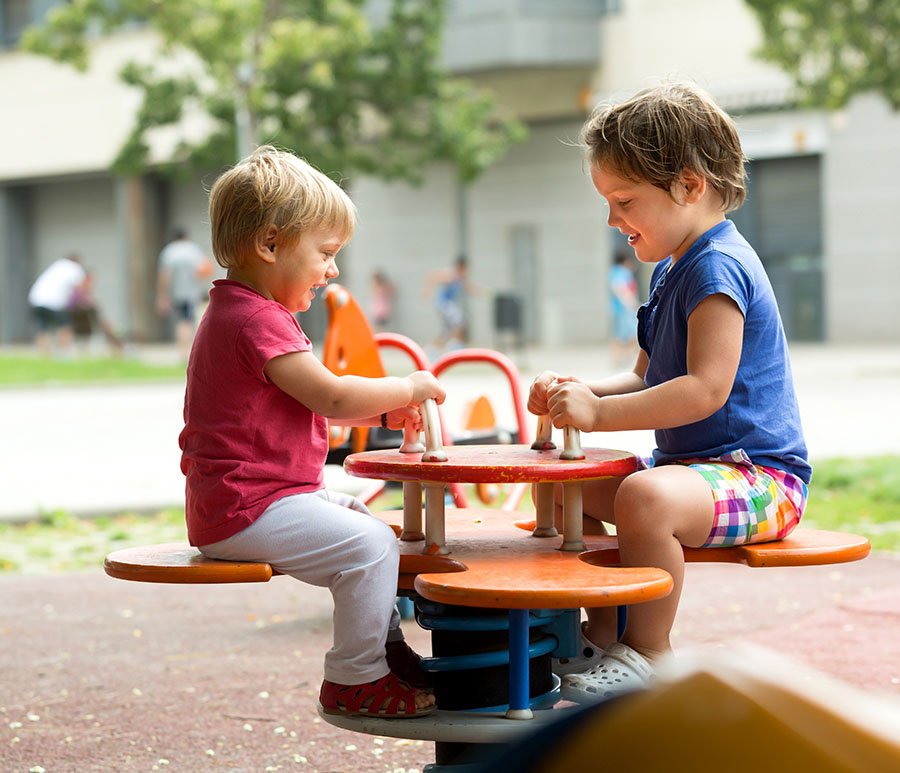Playgrounds are more than just spaces for energetic fun—they’re essential environments where children learn how to interact, collaborate, and grow socially. The brightly colored slides, monkey bars, and climbing walls are actually backdrops for some of the most important social lessons of childhood. From learning how to share to developing empathy, the playground sets the stage for lasting life skills.
Unstructured Play Sparks Social Growth
One of the unique features of playgrounds is that they offer unstructured, open-ended play. Unlike classroom activities or organized sports, children on a playground get to make up their own games and rules. This kind of free play encourages children to initiate conversations, negotiate roles, and collaborate to reach a shared goal.
For instance, a game of pretend might start with one child suggesting, “Let’s play pirates!” and others jumping in with their own ideas. In that moment, kids are practicing essential social tools: communication, listening, and compromise.
Learning to Navigate Conflict
Disagreements are inevitable during play, and the playground is the perfect training ground for resolving them. Whether it’s a dispute over turns on the slide or someone feeling left out of a group game, these small conflicts give children the chance to learn problem-solving strategies in real time.
Over time, children figure out how to express their feelings, advocate for themselves, and consider the perspectives of others. These are crucial components of emotional intelligence and social resilience that stick with them for life.
Inclusive Play Builds Empathy and Understanding
Modern playgrounds are increasingly designed to be inclusive, allowing children of all abilities to play together. This creates meaningful opportunities for children to learn about diversity and inclusion through firsthand experience.
When children play with peers who have different physical or cognitive abilities, they often develop a deeper sense of empathy. They learn how to adapt games, offer help, or simply treat others with kindness—values that extend far beyond the playground fence.

Developing Communication Skills
Every game, from tag to hide-and-seek, involves communication. Children need to talk to each other to explain rules, give instructions, or react during play. These interactions enhance their vocabulary, tone awareness, and listening skills.
Even non-verbal communication, like body language and facial expressions, becomes easier to interpret when kids are actively engaged in social play. This awareness is especially beneficial for younger children who are still developing verbal fluency.
Building Confidence and Friendships
Social success on the playground often leads to increased confidence. When a child makes a new friend, leads a game, or successfully resolves a conflict, they gain a sense of accomplishment and belonging.
This self-assurance helps children feel more comfortable initiating interactions in other settings, such as school or extracurricular activities. And since friendships often begin with a simple “Want to play?” the playground becomes the birthplace of many meaningful connections.
Tips to Encourage Social Development on the Playground
- Model Positive Interaction: Adults can demonstrate sharing, patience, and friendliness, especially when younger children are watching.
- Invite Group Play: Encourage children to include others by suggesting games that require multiple players, like relay races or role-play adventures.
- Talk About Feelings: Use post-play conversations to reflect on what went well and how conflicts were handled.
- Provide Diverse Equipment: A variety of play structures supports different types of interaction—group games, imaginative play, and solo activities that can become social over time.
- Celebrate Teamwork: Praise cooperation and kindness to reinforce positive behavior.
The Long-Term Impact of Playground Socialization
The social skills learned on the playground don’t just apply to childhood. They lay the foundation for effective teamwork, leadership, and relationship-building in adulthood. Being able to understand others, work through disagreements, and express oneself clearly are traits that benefit children long after they’ve outgrown the jungle gym.
As children climb, swing, and explore, they’re also developing the soft skills that make them empathetic, cooperative, and emotionally intelligent individuals. So the next time you see a group of kids huddled around the sandbox or chasing each other through a maze of slides, remember: they’re not just playing—they’re growing.


